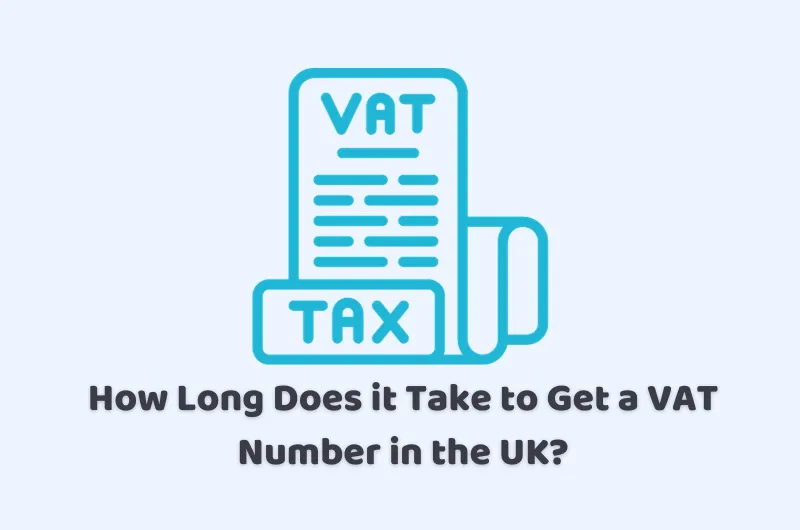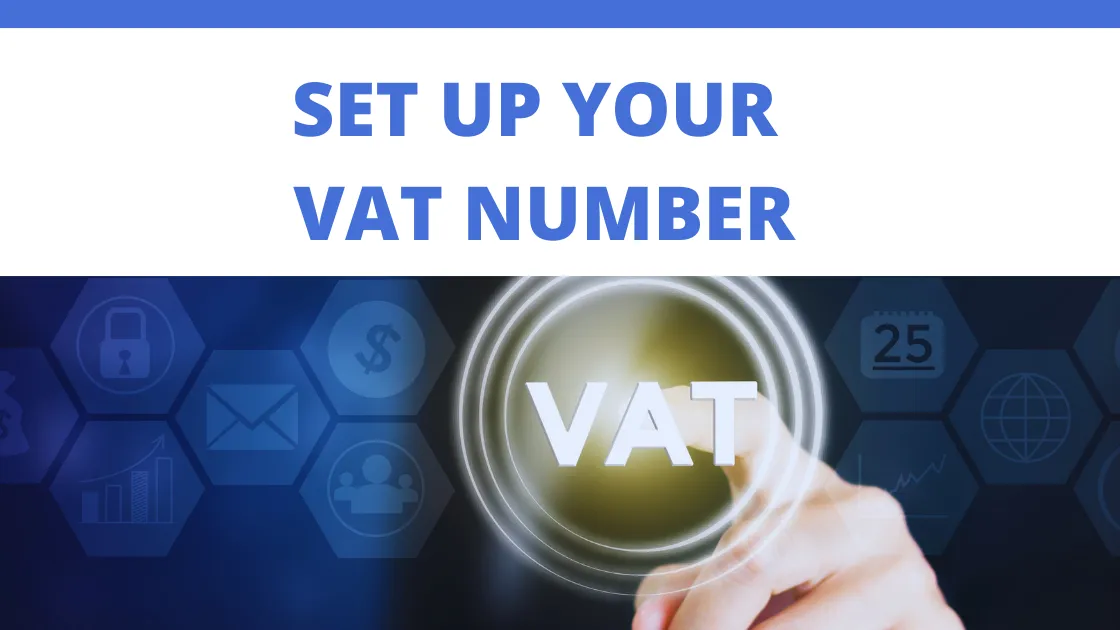Have you ever stumbled across the term "VAT number" while dealing with freelance platforms like Fiverr? If you have, you’re not alone! VAT, or Value Added Tax, is quite a crucial aspect in the world of business, especially for freelancers and businesses earning above a certain threshold. This number plays a significant role in how businesses handle tax responsibilities, which is why it’s important to familiarize yourself with it, especially if you're a seller on Fiverr. In this piece, we'll explore what a VAT number is and why it matters to freelancers.
Understanding Fiverr's Tax Requirements

When engaging in transactions on Fiverr, having clarity on tax requirements can help you navigate your financial responsibilities more smoothly. Here’s what you need to know about Fiverr's tax landscape:
- What is VAT?
VAT is a consumption tax placed on goods and services. It's collected at each stage of production and distribution, with final consumers bearing the ultimate cost. - When Is It Required?
Generally, if you're operating in a country where VAT applies and your sales exceed the jurisdiction's threshold, you’ll need to register for a VAT number. This means if you’re earning above a certain limit through Fiverr, you may be required to register. - Fiverr's Role:
Fiverr usually collects VAT on its fees from buyers in applicable regions, but sellers must determine whether they should charge VAT on their services. - Receiving Payments:
If you have a VAT number, it allows you to potentially reclaim VAT you paid on business-related purchases, helping manage your finances better.
In conclusion, understanding your tax obligations, including the VAT number, can enhance your freelance experience on Fiverr. Statistical data and financial clarity can pave the way for a successful business operation, ensuring compliance while maximizing profitability. Remember, taxes may not be anyone's favorite topic, but they're vital for running a legitimate business!
Also Read This: How Much Can One Earn from Fiverr?
How VAT Numbers Function on Fiverr

So, you might be wondering how exactly VAT numbers come into play when you’re using Fiverr, right? Well, let’s break it down! When you're buying or selling services on Fiverr, VAT can be a little complicated. In essence, a VAT number is a unique identifier for those registered for Value Added Tax (VAT). This system is used in many countries, particularly in Europe, to streamline taxation, and Fiverr is no exception.
Here’s a little snapshot of how it works:
- For Sellers: If you're based in a country that requires VAT registration, you'll need to provide your VAT number. This allows Fiverr to properly account for the tax obligations associated with your earnings.
- For Buyers: If you’re purchasing services from sellers who are VAT-registered, the applicable VAT will be added to the cost of the service. This means that when you check out, you may see the service price plus VAT listed separately.
- Transaction Transparency: Including VAT numbers helps Fiverr ensure that all transactions remain transparent and that the correct taxes are collected and remitted.
In summary, whether you're a seller or a buyer, VAT numbers help facilitate smoother transactions, ensuring compliance with tax regulations. This ultimately keeps everything above board, so you can focus on what really matters—delivering or receiving great services!
Also Read This: What is the Best Music Promotion on Fiverr?
Who Needs a VAT Number on Fiverr?
Now, let's talk about who exactly needs a VAT number when using Fiverr. It's essential to recognize that VAT isn't just for anyone—it's mainly for those operating in specific circumstances. Here’s a breakdown:
- Sellers in the EU: If you’re offering services from a country that has VAT and your sales exceed a certain threshold, you’ll likely need a VAT number. This generally applies to freelancers and businesses registered in the European Union.
- Businesses Selling to EU Customers: If you’re outside the EU but plan to sell services to EU customers, you'll probably need to register for VAT to ensure compliance with EU tax laws.
- Freelancers with Ambitions: If you’re looking to grow your freelance business and earn above the VAT threshold, obtaining a VAT number can prepare you for potential expansion and streamline your future tax obligations.
To sum it up, if you're operating as a business or making substantial earnings on Fiverr, it’s wise to check into VAT registration. This way, you can ensure you’re compliant and ready to tackle any potential tax responsibilities that come your way! Remember, understanding your requirements is crucial for a smooth and successful freelancing journey on Fiverr!
Also Read This: What is Fiverr Jobs? A Comprehensive Guide to Freelancing Opportunities
Steps to Obtain a VAT Number
Obtaining a VAT number can seem daunting at first, but with a step-by-step approach, it becomes much more manageable. Here’s how you can go about it:
- Determine Your Eligibility: First things first—check if you need a VAT number. If your sales exceed a certain threshold, usually around €10,000, you might need to register for VAT in your country.
- Gather Required Information: Before applying, collect all necessary documents such as your business registration details, identification (like your passport or national ID), and any financial records that may be relevant.
- Choose the Right Application Process: Depending on your location, you can typically apply online through the tax authority’s website. Some countries might also allow application via postal mail.
- Complete the Application: Fill out the VAT registration application form accurately. This usually requires information about your business activities, estimated turnover, and other specific data.
- Submit Your Application: After completing the form, submit it along with any required documents. Make sure you keep copies for your records!
- Await Confirmation: After submission, your application will be processed. This can take anywhere from a few days to a few weeks, depending on your jurisdiction.
- Receive Your VAT Number: Once approved, you'll receive your VAT registration number. Keep this number handy as it’s crucial for tax reporting and invoicing.
Remember, the specific requirements and processes can vary from one country to another, so it’s always a good idea to check with your local tax authority for tailored guidance!
Also Read This: How to Contact Fiverr Support by Phone
Using Your VAT Number on Fiverr
Once you have your VAT number, using it on Fiverr is not only a smart move but also a requirement if you want to comply with tax laws. Here’s how you can make the most out of it on the platform:
- Add Your VAT Number to Your Profile: Go into your Fiverr profile settings. There will usually be a section for taxes or VAT information where you can enter your VAT number.
- Issue Invoices with VAT: If you’re providing services to clients in the EU, you must include VAT on your invoices once you're registered. Clients will appreciate clear and compliant paperwork.
- Understand Your Client’s Responsibilities: Depending on where your clients are based, they might also be responsible for reporting VAT. It’s good to clarify this in your communication.
- Stay Updated on VAT Rates: VAT rates can fluctuate. Make it a habit to check your local rates periodically to ensure you’re charging your clients correctly.
- Keep Records: It’s essential to maintain accurate records of all transactions involving your VAT number. This will simplify any future tax obligations and audits.
Being diligent about using your VAT number on Fiverr not only keeps you compliant but also enhances your professionalism. It reassures clients that you’re a legitimate business, fostering trust and long-term partnerships!
Also Read This: How to Use Fiverr Effectively
Common Questions About VAT Numbers and Fiverr
When diving into the world of Fiverr, especially as a seller or a buyer based in Europe, VAT (Value Added Tax) can be a bit of a head-scratcher. Let’s break down some of the common questions people frequently ask regarding VAT numbers and their implications on Fiverr transactions.
- What is a VAT number?
A VAT number is a unique identifier assigned to businesses and individuals registered for VAT. It’s used to track VAT payments and ensure compliance with tax regulations.
- Do I need a VAT number to sell on Fiverr?
If you are a seller based in the EU, you will need a VAT number once your sales exceed a certain threshold. This applies to both physical goods and digital services.
- Will I be charged VAT on my Fiverr purchases?
Yes, buyers in certain countries, particularly within the EU, may be charged VAT on Fiverr purchases. This is automatically added to the price at checkout, depending on the buyer's location.
- How can I get a VAT number?
You can apply for a VAT number through your local tax authority's website. The process may vary depending on your country.
- What if I don’t have a VAT number?
If you aren't registered for VAT but are required to be, you may face penalties. It's essential to understand VAT laws in your country to avoid any complications.
Conclusion: The Importance of Knowing Your VAT Responsibilities
Understanding your VAT responsibilities is crucial for anyone engaged in buying or selling through Fiverr, especially within the EU. Not only does it help you stay compliant with tax laws, but it can also enhance your overall business credibility and avoid any potential legal issues.
Here are some key takeaways on the importance of VAT responsibilities:
- Financial Planning: Knowing your VAT obligations helps with budgeting and managing finances effectively.
- Legal Compliance: Staying compliant with VAT regulations protects your business from fines and penalties.
- Enhanced Trust: When you handle VAT correctly, clients feel more secure collaborating with you, knowing you maintain professional standards.
- International Business: Understanding VAT is especially essential if you're looking to expand into international markets.
In conclusion, whether you are a buyer or seller on Fiverr, knowing your VAT responsibilities ensures smoother transactions and a professional edge in the competitive online marketplace. Being informed and proactive about VAT can save you from headaches down the line!



